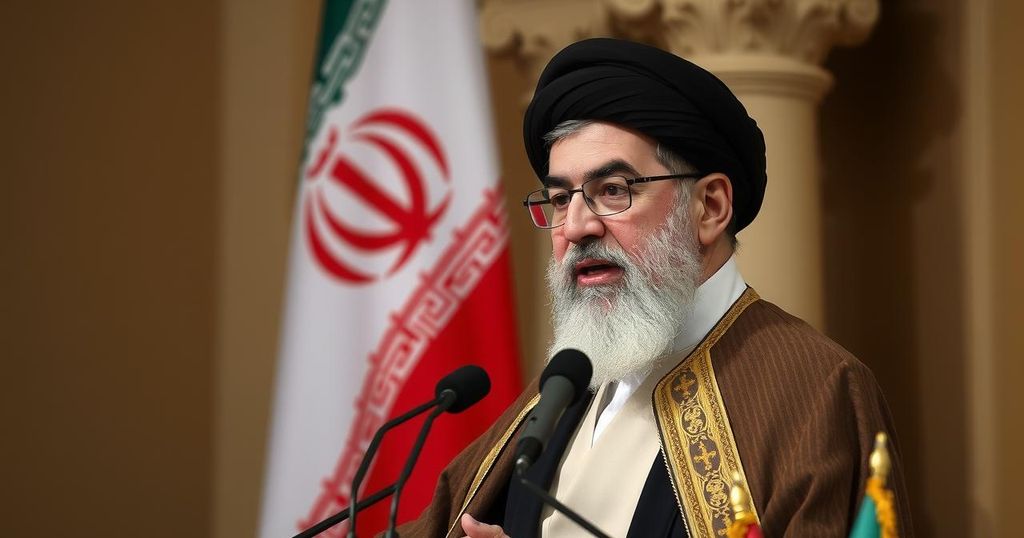Iran’s Supreme Leader Ayatollah Ali Khamenei has condemned the ousting of Bashar al-Assad as a US and Israeli conspiracy while implicating a neighboring country. He maintains that Iranian influence remains strong despite the regime change, asserting that pressure on Iran will only enhance its resolve. The Iranian leadership seeks to foster continued relations with Syria and support an inclusive government following al-Assad’s fall.
In a recent address in Tehran, Iranian Supreme Leader Ayatollah Ali Khamenei attributed the ousting of former Syrian President Bashar al-Assad to a conspiracy orchestrated by the United States and Israel. He asserted that this event was a result of a “joint American-Zionist plot” and implicated an unspecified neighboring country in Syria’s plight. Khamenei emphasized that Iranian intelligence had forewarned Syrian authorities about impending threats, which he claimed were subsequently disregarded by the Damascus government.
Khamenei stated that despite the changes in Syria, Iran’s influence in the region would remain intact, dismissing claims that the fall of al-Assad would weaken the “axis of resistance” led by Iran against Western powers. He expressed confidence that increased pressures from adversaries would only serve to fortify their resolve and capabilities. Following the regime’s collapse, Iran reiterated its commitment to sustaining its relations with Syria while advocating for a comprehensive government that encompasses all factions of Syrian society.
The recent conflict in Syria, which has seen the end of al-Assad’s protracted rule, has been marked by significant military and political support for the Assad regime from Iranian and Russian forces. In light of these developments, the Iranian leadership continues to project a sense of stability and continuity in its rapport with Damascus, despite the upheaval in governance.
The backdrop to this situation includes a decade-long Syrian civil conflict that has drastically altered the landscape of power within the region. Since the uprising in 2011, Syrian President Bashar al-Assad has faced substantial opposition, resulting in international involvement from various state and non-state actors. Iran has been a critical ally for al-Assad, providing military, financial, and strategic support to maintain his regime. However, changes in control within Syria foster concerns among Iranian officials regarding their geopolitical standing and influence in the Middle East, particularly against the United States and Israel’s presence and activities in the region.
In conclusion, Ayatollah Khamenei’s remarks reflect Iran’s determination to position itself as a resilient force in the Middle East despite the recent fall of al-Assad. By framing the ouster as a conspiracy led by the US and Israel, Khamenei seeks to galvanize support within Iran and reaffirm the significance of Iranian influence in Syria. The Iranian leadership’s call for a unified government in Syria further underscores its intent to maintain bilateral relations amidst the ongoing regional challenges.
Original Source: www.aljazeera.com







